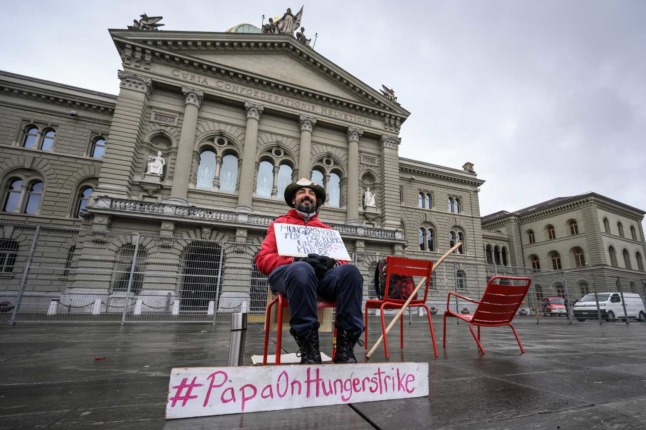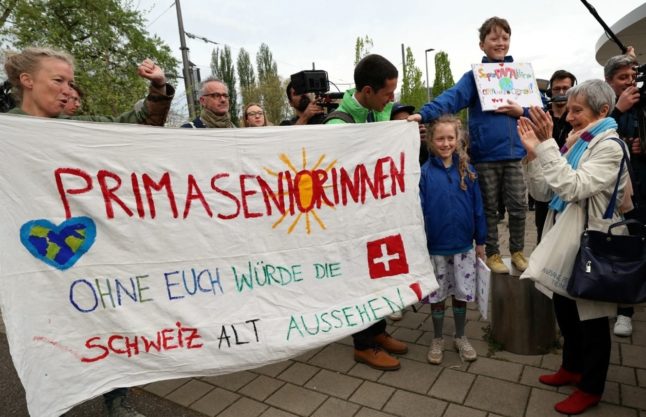Guillermo Fernandez, who says he has lost 20 kilos since launching his hunger strike on November 1 to push for Swiss MPs to take climate change seriously, ended his fast by gingerly eating a banana outside the parliament building. “Victory!!!!” he announced on Twitter under the hashtag: “PapaNoLongerOnHungerStrike!!”.
UPDATE: How Switzerland’s flood planning helped it avoid disaster
“Finally the parliament will be confronted with the truth!” His announcement came after the president of the lower house of parliament Irene Kalin, of the Green Party, announced that scientists had been invited to brief MPs on May 2, 2022 about the latest research from the Intergovernmental Panel for Climate Change (IPCC).
When he launched his hunger strike 39 days ago, Fernandez declared that he was terrified for his three children’s future after seeing the IPCC’s bombshell “code red” report last August warning the Earth is on a pathway towards catastrophic warming.
Last month, Fernandez declared on Twitter that he was on “hunger strike for my children’s climate. I ardently desire to live, but I am willing to die if it can protect them.”
Since then, he has been sitting bundled up in the cold outside the Swiss parliament building in Bern refusing to eat. Dozens of scientists had come out in support of his strike. But some parliamentarians interviewed by the Tribune de Geneve daily voiced unease on Thursday at his methods, and insisted they were already well-informed about the climate crisis.
“I wouldn’t use the term blackmail, but it is similar,” Vincent Maitre of the Centre Party said.
“Here, were are debating the climate challenges, but the democratic process takes time. It is not as easy as flipping a switch,” said Pierre-Andre Page of the populist rightwing Swiss People’s Party, Switzerland’s largest party.
Adele Thorens of the Greens however insisted that if Fernandez had seen his demands met, “it was because those demands were reasonable,” she told the paper.



 Please whitelist us to continue reading.
Please whitelist us to continue reading.
Member comments